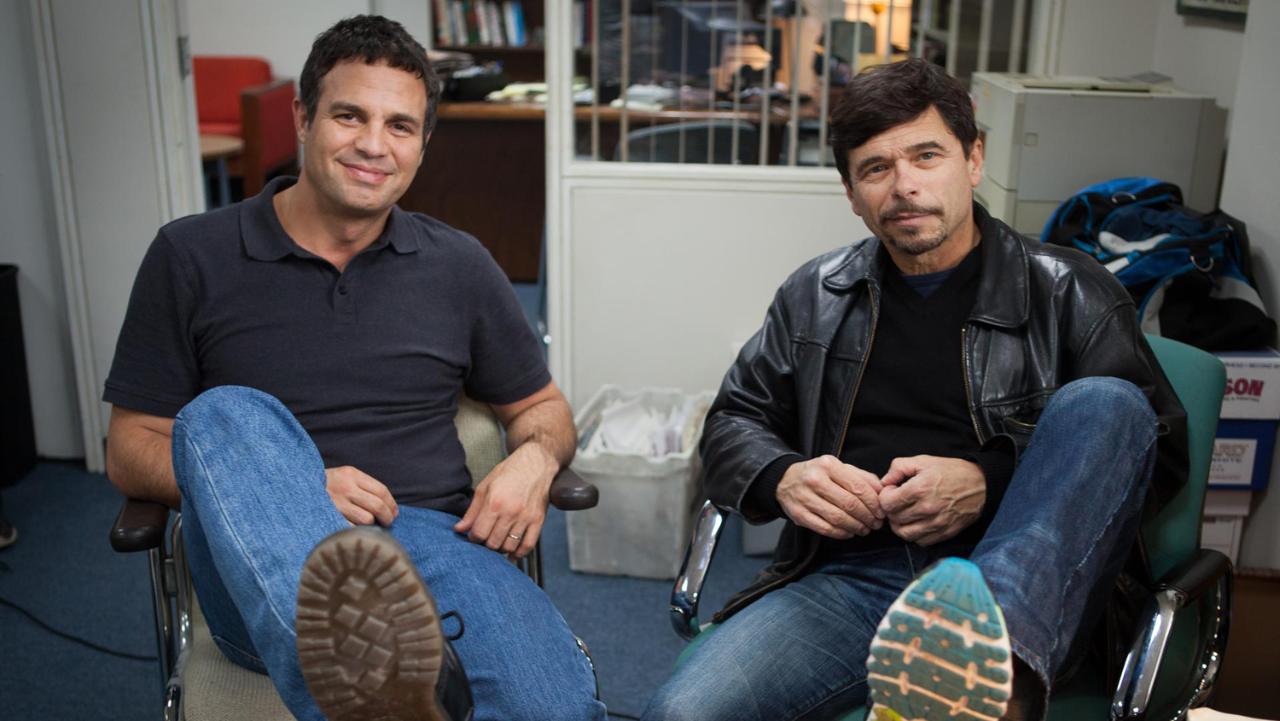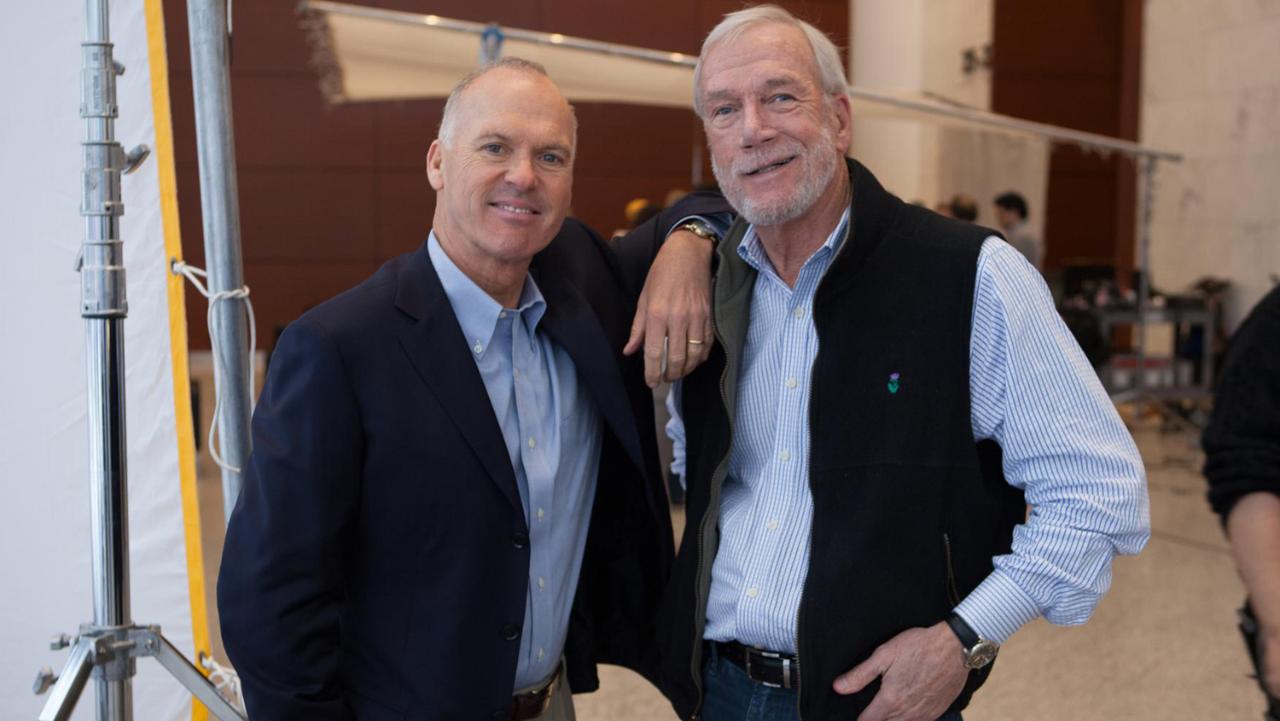"the Church Was Corrupt to the Core': Meet the Oscar-nominated Heroes of Spotlight
By Nigel Farndale
The Boston Globe's painstaking investigation into paedophile priests led to arrests, lawsuits and an Oscar-tipped film. But their fight for justice isn't over yet In January 2002, a newspaper in Boston broke a story that was to shake the Roman Catholic Church to its very foundations. It concerned the sexual abuse of children by more than 70 priests, and the systematic attempts by Cardinal Bernard Law, the Archbishop of Boston, to cover up their crimes. For years, the Cardinal had been reassigning known paedophiles — moving them from parish to parish — effectively allowing them to prey on new victims. He had, moreover, been approving out-of-court settlements to their victims, in order to buy their silence. The Boston Globe’s report was the result of a six-month investigation by the paper’s semi-autonomous Spotlight team — three men and one woman. It began when a new editor took over the paper and asked the team to follow up on a column about Rev John Geoghan, a local priest accused of having sexually abused dozens of young parishioners. Not since The Washington Post broke the Watergate story in the 1970s had a small, dedicated team of investigative reporters had such an impact. They went on to win a Pulitzer Prize and spark investigations, not only in other American cities, but in 102 dioceses around the world, including Britain. In Ireland, it emerged, subsequent to the Boston findings, that the church had covered up the crimes of 46 paedophile priests. And now their story has been made into a critically-acclaimed and Oscar-nominated film, Spotlight, directed by Tom McCarthy. When I meet two of the reporters who worked on the story, Walter “Robby” Robinson (played by Michael Keaton in the film) and Michael Rezendes (Mark Ruffalo), I begin by asking them at what moment they realised this story was going to be huge. Rezendes, a wiry, dark-haired man, leans forward in his chair like a Jack Russell terrier picking up a scent. “For me,” he says, “the moment came when I was investigating Geoghan. I thought I’d find out what his most recent assignment had been. When I saw he had been put in charge of altar boys, even though the church knew he had been abusing children, I thought, ‘This is depraved’.” “For me,” Robinson, a gruff-voiced bear of a man, says, “it was when we started interviewing adults who had been molested as children. By then we knew, from gaining access to sealed court records, that around 15 predatory priests were being protected by the church, but when we talked to a psychologist specialising in paedophilia cases, we realised that that figure could be much higher.” (Based on his research into the behaviour of paedophiles, the psychologist estimated that around six per cent of all priests could be involved.) Eventually the team uncovered evidence against 250 priests just in Boston. “Quite incredible,” says Robinson. I ask whether it was only the church at fault. After all, for a cover up to last for so many years, it must have required the complicity of the media, the police and the judiciary as well. “To an extent that’s true,” Robinson says. “Most of our sins were sins of omissions. We all missed the story for years because we weren’t looking in the right direction. We missed clues because we didn't want to believe that the church, this high moral authority in our lives, was capable of doing this. We were nearly all Irish Catholics on the paper — like 53% of our readers — and we didn't want to believe it. To this day it seems unimaginable.”
But do they think Cardinal Law was being naive or wicked? “What were his motives, you mean?” Robinson asks. “Well, his motive — and this came out in all the memos between him and his bishops — was to preserve the reputation of the church no matter what. In order to do that he was willing to allow these crimes to be committed again and again and again.” One memo recommended that a case, “not be pursued.” The Cardinal said: “If you would like [this case] presented to the Sexual Misconduct Review Board, I would do so. However, I do not encourage it.” But Robinson accepts there was a lot of naivety within the church about paedophilia. “It treated these things as sins that could be forgiven with a few Hail Marys,” he says. “It was amazing how often we had to remind people that raping a minor is a crime,” Rezendes adds. “We were dealing with crimes not sins, or illnesses. It was the ultimate betrayal, and the ultimate hypocrisy, because the church is supposed to protect the innocent. It was corrupt to the core.” They think that being Catholics themselves gave them an insight into how this could have happened. “I think people who aren’t Catholic would struggle to imagine how a single mother could leave her children with a priest,” Rezendes says. “Whereas we understood intuitively that the priest would be the one person you would trust with your child. There is a line in the film which gets to the heart of it. One victim, when asked why he didn’t try to resist the priest who was abusing him asks, ‘How do you say no to God?’” “He wrecked my life,” another victim, Greg Ford, said of the Rev Paul Shanley, the priest who abused him. The reporters built up a strong relationship with him, and other victims, which they maintain to this day. “One of them, Phil Saviano, came in to our office in an agitated state carrying a box of evidence he had compiled and at first we didn't believe him,” says Rezendes. “But then we realised he had a legitimate complaint and, if he seemed irrational, it was because he had been ignored by the authorities for so long.” Worldwide, tens of thousands of children are estimated to have been abused, many of which have struggled with emotional issues well into adulthood. Some have committed suicide. Do they think the Catholic church has come to terms with this dark episode in its history? “In Boston more than most cities, yes.” Robinson says. “Last week Cardinal Sean O’Malley, the new Archbisop of Boston, came out and described the film as being powerful and important. And the church has been forced to enact reforms, sometimes with a gun to its head. But it’s still there and I think the survivors would say the church hasn't done nearly enough. I think it still goes on in other countries. There are still priests who are put back in other parishes after being caught offending.” I also meet Mark Ruffalo, the actor playing Rezendes. He too was raised a Catholic, but is lapsed now. He tells me that when he started researching this role, for which he has been Oscar nominated, he could feel his anger and revulsion mounting. “Because Mike [Rezendes] was also brought up a Catholic, I did wonder what his motivation was,” he says. “Did he have a bone to pick with the church? But as I shadowed him I soon realised that he was driven purely by a sense of social justice.” Ruffalo believes the root cause of paedophilia in the priesthood is celibacy. “It’s not a natural state for a human being. It is totally perverted. It is also pretty random, because celibacy only came in for priests in around the 13th century. They didn't want them leaving their property to their heirs, rather than the church. Before that they could marry.” In September 2003, the Boston archdiocese paid out $85 million to settle more than 500 civil suits, and, since the Spotlight investigation, many of the accused priests have been forced to resign or have been laicized, while others have gone to jail — Rev John Geoghan, for example, was sentenced to 10 years. Worldwide, there have been countless other inquiries, apologies, resignations and convictions.
When I speak to Tom McCarthy, the director, I ask him what the darkest thing was that he discovered when working on the film. “That priests targeted boys rather than girls because they would feel more ashamed of what they were doing and so would be less likely to tell anyone,” he replies. “These were perfect predators.” And how does he think audiences will react to the film? “I think most Catholics who watch it with an open mind will find it cathartic,” he replies. All except Cardinal Law, perhaps. He resigned in December 2002, but instead of going to prison, as many felt he should, he was forgiven by Pope John Paul II, and appointed head of Santa Marie Maggiore, one of the most significant basilicas in Rome. He is now 84 and retired. “Cardinal Law was not only not punished,” Ruffalo says, “he was promoted. He should have gone to jail.”
|
.
Any original material on these pages is copyright © BishopAccountability.org 2004. Reproduce freely with attribution.


